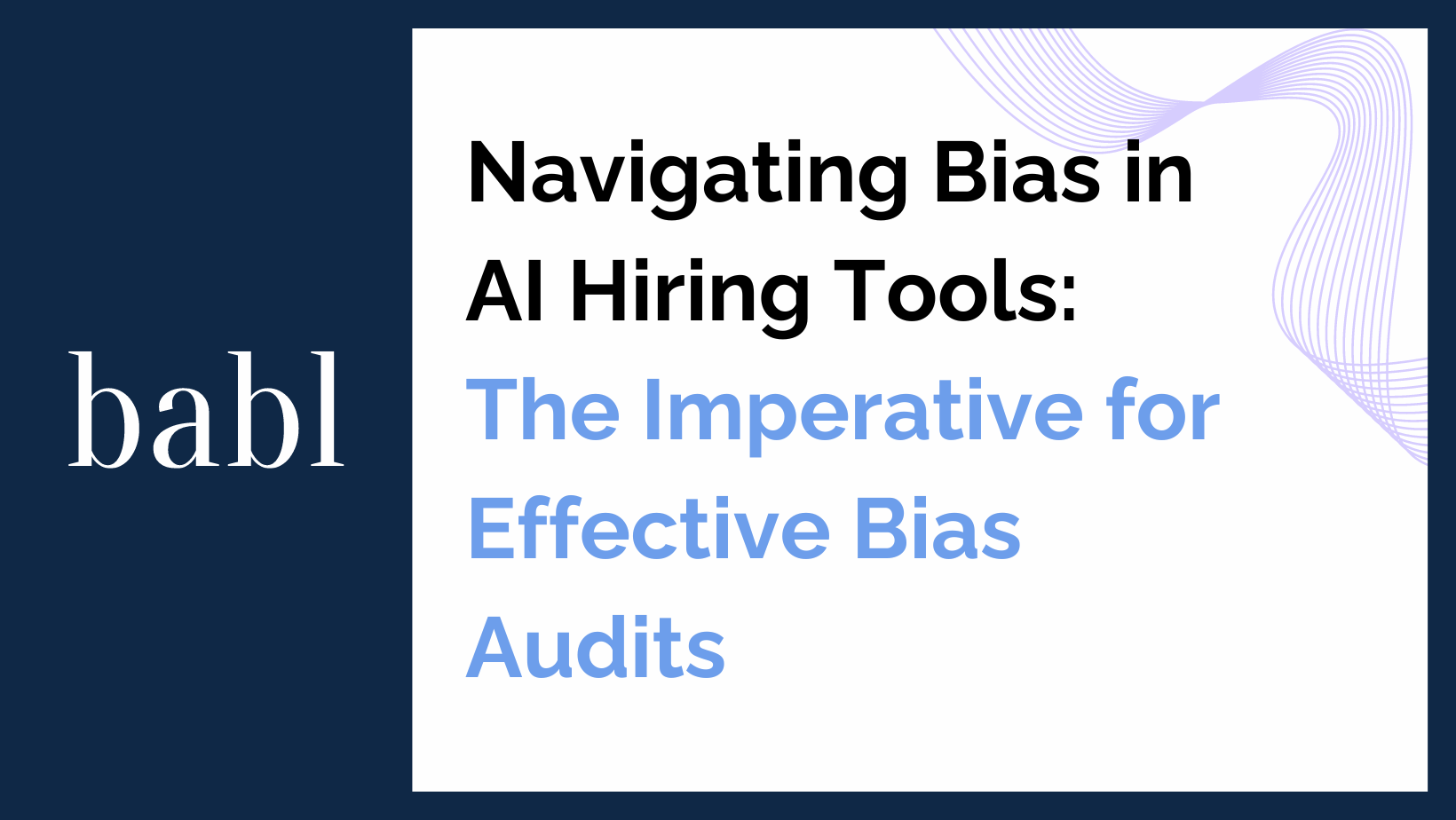In an era where Artificial Intelligence (AI) is increasingly integrated into hiring practices, the specter of bias looms large, presenting significant risks to fairness and compliance. AI-driven tools, designed to streamline the recruitment process by assessing thousands of applications, can inadvertently perpetuate historical biases if not carefully audited and regulated. Bias audits will play a critical role in maintaining fairness in AI-driven employment decisions.
The Rising Challenge of Bias in AI-Driven Recruitment
AI technologies offer transformative potentials in hiring by automating the screening and evaluation of candidates. These technologies can analyze vast amounts of data far beyond human capability, identifying patterns and preferences in candidate selection processes. However, without proper oversight, these tools can also replicate and amplify biases present in the training data or algorithms themselves.
Understanding Bias in AI Tools
Bias in AI hiring tools can manifest in several forms:
-
- Historical Bias: Where AI systems learn from past hiring data that contains human biases.
-
- Algorithmic Bias: When algorithms make decisions based on skewed or partial data sets, leading to unfair outcomes.
-
- Interaction Bias: Occurs when AI systems evolve their biases based on how users interact with them.
These biases can lead to discriminatory practices, where candidates from certain demographic backgrounds are systematically disadvantaged, raising ethical concerns and potential legal implications.
The Critical Role of Bias Audits in HR
Bias audits are systematic examinations designed to ensure AI tools operate fairly and in compliance with anti-discrimination laws. They serve multiple critical functions:
-
- Detecting Unintended Bias: Audits help identify biases embedded within AI systems, whether in the data used, the algorithmic design, or the decision-making processes.
-
- Ensuring Compliance and Ethical Standards: Regular audits ensure that AI hiring tools comply with legal standards such as the EEOC guidelines and ethical norms, protecting organizations from legal repercussions and reputational damage.
-
- Enhancing Decision-Making Quality: By identifying and correcting biases, audits improve the accuracy and fairness of AI decision-making, leading to more equitable hiring outcomes.
How Bias Audits are Conducted
The process of conducting a bias audit involves several detailed steps:
-
- Pre-audit Planning: Involves defining the scope of the audit, selecting the audit team, and ensuring access to necessary data and AI models.
-
- Data Review: Auditors review the data used to train and operate the AI system, looking for signs of historical bias or data imbalances.
-
- Algorithm Assessment: Involves dissecting the AI algorithms to understand decision pathways and identify potential sources of algorithmic bias.
-
- Outcome Analysis: Compares the outcomes produced by the AI tool across different demographic groups to check for any disparities that indicate bias.
-
- Reporting and Action Steps: The final step involves documenting the audit findings and providing recommendations for mitigating any identified biases.
Tools and Techniques for Effective Bias Audits
Auditors employ a variety of tools and techniques to assess AI systems:
-
- Statistical Analysis: Used to compare outcomes across different demographic groups to detect disparities.
-
- Counterfactual Reasoning: Involves altering data inputs to see how the system’s decisions change, which can highlight dependencies on potentially biased factors.
-
- Transparency Software: Tools that help unpack ‘black-box’ AI models to make their operations more understandable and scrutinizable.
The Consequences of Failing Bias Audits
Failing a bias audit can have several serious repercussions for organizations:
-
- Legal and Compliance Risks: Non-compliance can lead to lawsuits, fines, and penalties under various anti-discrimination laws.
-
- Reputational Harm: Public exposure of bias in hiring practices can tarnish an organization’s image, impacting stakeholder trust and customer loyalty.
-
- Operational Impact: Addressing the fallout from failed audits can divert resources from other business activities, impacting overall productivity and performance.
Best Practices for Mitigating AI Bias
To mitigate the risks of bias in AI hiring tools, organizations should adopt the following best practices:
-
- Inclusive Data Practices: Ensure the data used to train AI systems is representative of all groups to minimize historical biases.
-
- Routine Audits: Conduct bias audits regularly to catch and correct biases as AI systems evolve.
-
- Multi-Disciplinary Teams: Involve a wide range of stakeholders, including HR professionals, ethicists, and legal experts in the development and auditing of AI tools.
Embracing Bias Audits to Foster Fair AI Practices
AI has the power to make hiring more efficient and data-driven, but fairness must remain its foundation. Bias audits bridge the gap between innovation and accountability, ensuring that AI supports diversity, equity, and trust in the workplace. By investing in regular audits, transparent data practices, and strong human oversight, organizations can uphold ethical hiring standards while meeting regulatory expectations. In doing so, they help build a future where AI empowers opportunity rather than exclusion.
Need Help?
If you want to better understand or implement AI bias audits in hiring, reach out to BABL AI. Their Audit Experts can help you evaluate risk, align with regulations, and build more equitable AI systems.





